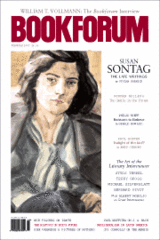
André Aciman is our consummate Proustian. Even more than Roger Shattuck, who’s championed Proust in scholarly works, or Alain de Botton, who’s promoted Proustian self-help, Aciman has taken to heart the author’s injunction to use In Search of Lost Time as a personal darkroom—to dip the negatives of one’s own memories into the magic solution Proust provides. In his remarkable collection of essays, False Papers (2000), Aciman tells how his father first bought him Swann’s Way when he was fifteen (“I already knew I had just received, perhaps without my father’s knowing it, his dearest, most enduring gift of love”). Later in the same essay, he makes the pilgrimage to Illiers-Combray only to be predictably underwhelmed (as Marcel was by his much-longed-for Venice). But the best essays are those in which Aciman imports Proust to his various homes in Cairo, Rome, New York, and Cambridge, Massachusetts.
How strange, then, that Aciman’s first novel, Call Me by Your Name, should run against the Proustian grain. The plot is fairly simple: A Harvard graduate student named Oliver comes to stay with an academic expat family in the Italian Riviera, where he will oversee the translation of his dissertation on Heraclitus. As he wins the family over with his breezy charm and preppy insouciance, Oliver also inspires the adoration of the professor’s teenage son, Elio, who relays to us each stage of his infatuation.
Elio catalogues every aspect of Oliver—his gazes, his phrases—and even augurs meaning from his clothing: “He had, it took me a while to realize, four personalities depending on which bathing suit he was wearing.” Elio, in turn, dazzles Oliver with his precocity—he’s a virtuoso on piano and on an enviously easy footing with literature from Ovid to Celan. But he is unsure and untested in carnal matters. His desire for Oliver literally false-starts when he accidentally (and discreetly) ejaculates in his presence (the scene recalls Marcel’s embarrassing tussle with Gilberte). But when Oliver starts sleeping with a local girl, it seems that Elio’s fantasies of consummation will never be realized. He muses about killing, or at least crippling, Oliver: “If he were in a wheelchair, I would always know where he was, and he’d be easy to find.”
But then, just as Elio has given up hope, it happens: He slips into Oliver’s room one night and so begins their five-week love affair. They have adventurous, almost incessant sex, during which, at Oliver’s prompting, they call each other by the other’s name. As a strategy for subsuming the other’s self, this verbal masquerade is strikingly successful. At first shameful for Elio, their passion quickly becomes all-consuming. The lovers revel in their sameness—they are both young Jews, “brothers in the desert”; they experience the same sexual pains and pleasures; their minds travel along the same currents to catch the right literary references.
For Proust, consummated desire compromises our capacity for self-knowledge, which is one reason he never allows anything to come to fruition for his narrator. Elio and Oliver seem to operate on some happier paradigm: They share intimacy that combines appetite and understanding. But as they push this intimacy to new, scatological extremes during an end-of-the-summer jaunt to Rome, Elio begins to have doubts: “Could intimacy endure once obscenity was spent and our bodies had run out of tricks? . . . Was our intimacy paid for in the wrong currency?” The boy recognizes he has bought his happiness on margin: “I suddenly saw that we were on borrowed time, that time is always borrowed, and that the lending agency exacts its due precisely when we are least prepared to pay up and need to borrow more.”
The only other person in the novel who appreciates this economy of memory and desire is Elio’s father, the professor. In so many words, he encourages his son to make the most of his summer fling. “In your place, if there is pain, nurse it, and if there is a flame, don’t snuff it out, don’t be brutal with it,” he advises. “We rip out so much of ourselves to be cured of things faster than we should, that we go bankrupt by the age of thirty and have less to offer each time we start with someone new.” Aciman clearly means for the professor to be a sympathetic, indulgent figure, which he is, but his counsel borders on banality of the “better to have loved and lost” variety. The question we are left with is more complicated: Will Elio and Oliver remember their shared summer in the same way?
The answer is a resounding yes. Call Me by Your Name ends with a series of unsatisfactory but still charged meetings between Elio and Oliver later in life. They have a rendezvous in New England, where Elio is traveling and where Oliver teaches and lives with his family. The novel, despite its melancholy send-off, ultimately holds out an extremely un-Proustian, optimistic promise: Love and understanding can endure hand in hand. Elio can still say of Oliver, “This was my favorite Oliver: the one who thought exactly like me.” Twenty years later, when they return to one of their cherished spots in Italy, Elio asks only to be called once more by the name Oliver—as if to imply that nothing has changed. For Proust, such naming is inevitably fraught with failure (Marcel at one point wishes he could give a different name to each of the Albertines he knows). The notion that the past could ever obey such a summons, that anyone could ever be so static, suggests that Elio has breached, but finally resisted, Proustian knowledge. This shying away leaves us with something less than we might have expected from Aciman’s previous reckonings with time.
Thomas Meaney has written for the Wall Street Journal, the Los Angeles Times Book Review, and the Yale Review.

